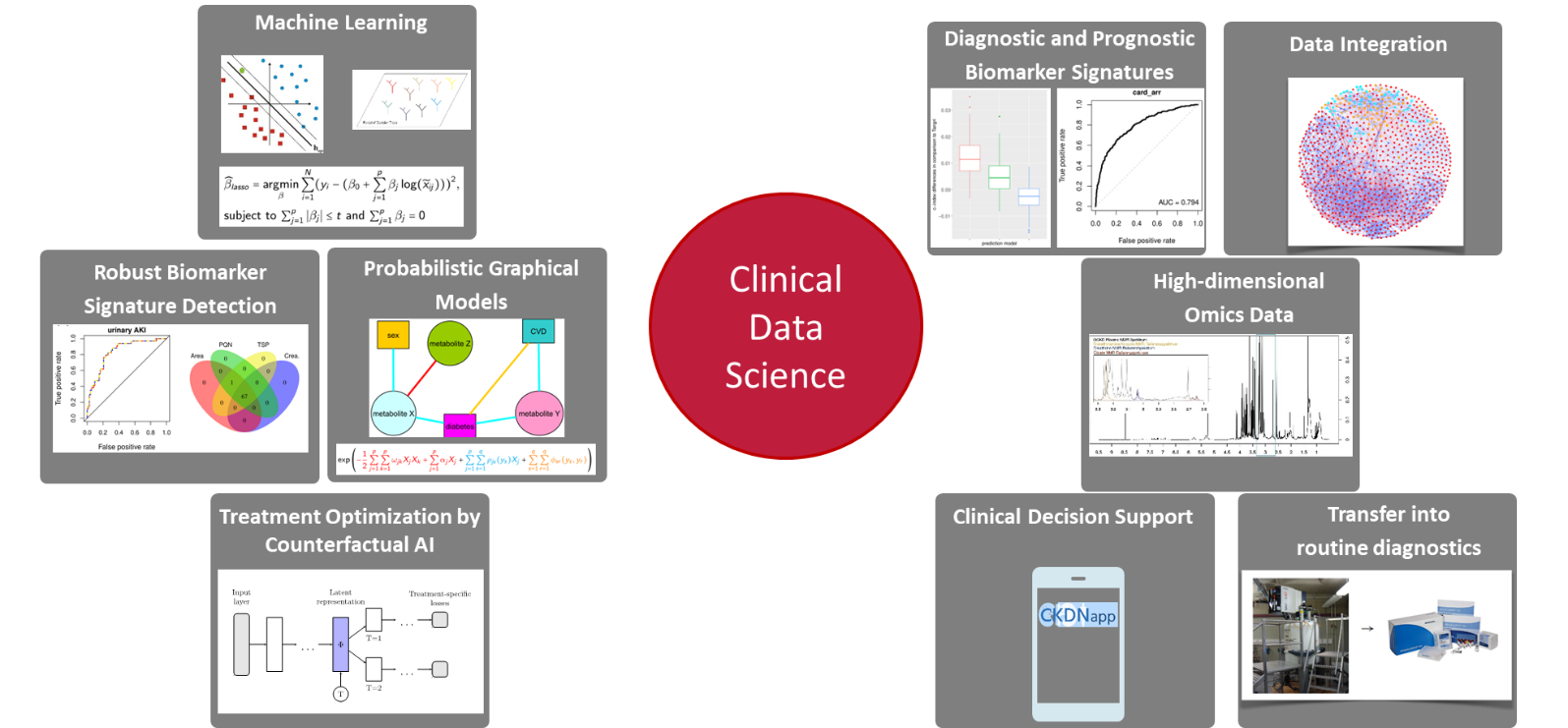Clinical Data Science

General aim
Systemic diseases, including chronic kidney disease, diabetes, and neurodegenerative as well as psychiatric disorders, typically affect multiple organs, are characterized by complex etiologies, numerous comorbidities, and individual prognoses. Their deep phenotyping by (multi-)omics techniques, which allow the measurement of hundreds to thousands of different genes, transcripts, proteins, and/or metabolites, enables the identification of powerful biomarkers for improved disease diagnosis, prognosis, and therapy response, as well as the elucidation of important disease pathomechanisms. The vast amount of generated data, comprising (multi-)omics, phenotypic, clinical, demographic, lifestyle, and disease history information, demands versatile data analysis strategies ranging from high-dimensional statistics to machine learning.
Focus of research
The Clinical Data Science group focuses on (1) the detection of novel biomarkers for complex diseases to improve patients’ diagnosis, prognosis, and therapy response, (2) the integration of large-scale heterogeneous patient parameters and omics data to disentangle underlying pathomechanisms, (3) the development and incorporation of novel data analysis techniques for enhanced biomarker discovery, and (4) the design of user-friendly clinical decision support software in order to transfer these biomarkers into clinical practice.




